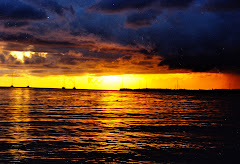By Peter C. Bjarkman
Reviewed by:
Steve Halpern
Every year in the United States when the leaves turn from green to brown, professional baseball teams compete to establish which one will win the World Series. Today about twenty-seven percent of the players in the so-called Major Leagues are of Latin American heritage. Peter J. Bjarkman’s book A History of Cuban Baseball, 1864 – 2006 documents how Cuban baseball is just as old as baseball in the United States, and how Cuba was the primary nation that introduced baseball to Latin America. One of the other facts Bjarkman documents is how Cuba has been the most consistent winner of international competitions over the last forty years. A good place to begin in telling this story is with the best Cuban player of all time, Martìn Dihigo (DEE-go), who has been enshrined in the Hall of Fame in Cooperstown, New York.
Martìn Dihigo was not allowed play in the so-called Major Leagues because he was Black. Dihigo played in Cuba, Mexico, Venezuela, the Dominican Republic, and in the Negro Leagues from 1922 – 1947. His final year in baseball was the same year that Jackie Robinson broke the color line and played for the Brooklyn Dodgers. Dihigo was voted the best second baseman in the history of the Negro Leagues, yet his primary position was pitcher. Although Dihigo was a pitcher, he was also one of the most fearsome hitters of his day, routinely having a batting average of over .300 and sometimes .400. To paraphrase a statement by Orestes (Minnie) Miñoso, “it is perhaps impossible⎯especially in today’s transient world crammed with instant celebrities but void of lasting heroes⎯to apprehend just how large a national treasure Dihigo actually was in the baseball-crazed nation of Cuba.” Bjarkman adds that “Here was a disadvantaged youth from Miñoso’s own sugar cane plantation background of grinding poverty who had somehow ignored all insult and exclusion to achieve ultimate hero status.”
Martìn Dihigo, like most Cubans, hated the regime of Fulgencio Batista. He left the island in 1952 when Batista took power and did not return until after the revolution. After Dihigo’s playing career was over he became a coach, umpire, and sports journalist. With the meager income he had from these sources, Dihigo reportedly gave what he could to support the revolutionary forces led by Fidel Castro. After the revolution Dihigo worked for the revolutionary government building a new era of baseball in Cuba.
In his book Bjarkman gives the evidence to show how the current baseball reality in Cuba has its roots in history. Amateur baseball has a long history in Cuba. Black players, including those in the Negro Leagues, used to play on the professional baseball teams in Cuba. However, the most prominent teams in pre-revolutionary Cuba were amateur teams that excluded Black players. Most of the players on those teams received special privileges for their efforts and had no desire to play on the professional teams.
With the coming of the Cuban Revolution, professional baseball was outlawed on the island, but Black players were now welcomed into the new amateur Cuban League. Conrado (Connie) Marrero played in Cuba and in the Major Leagues and argues that the caliber of play in Cuba has never been better than it is today. Bjarkman gives the evidence to show how some of the best Cuban stars since the revolution could easily make it in the Major Leagues. These players include: Omar Linares, Orestes Kindelán, and Osmani Urrutia. Bjarkman also gives the evidence showing that those players who have defected to the Major Leagues, which include Liván and Orlando (El Duque) Hernández, were second tier players when they played in Cuba.
Although the Cuban defectors have received a significant amount of publicity in the United States, the primary reason why Cuban players need to defect is because of the laws in the United States. All Star players from the Dominican Republic like Pedro Martinez, Sammy Sosa, and Manny Ramirez can maintain a residence in their home country, play for their national team, and receive millions of dollars for playing in the Major Leagues. Because of the US trade embargo against Cuba, Cuban players need to defect in order to play in the Major Leagues.
While I believe that Bjarkman has made several inappropriate criticisms of the Cuban government, the overall tenor of his book has uncovered a profoundly compelling history of baseball in Cuba. This history has, for the most part, been a secret in the United States since the trade embargo of 1960. Along with the study of baseball we can also find heroic stories about Cuban medicine, music, agriculture, and energy conservation. All this information is rarely, if ever, reported in the mainstream press. Although Bjarkman’s book is a thorough history of Cuban Baseball, when the embargo against Cuba is lifted, baseball will just be one of the many inspiring stories that people will discover when we will be exposed to a tidal-wave of information.


